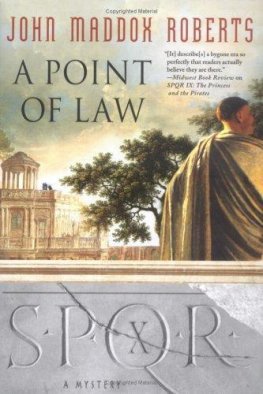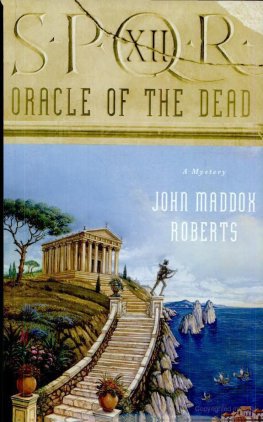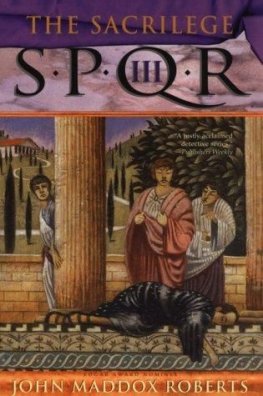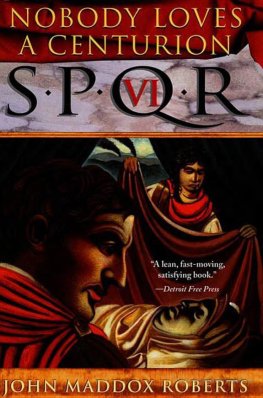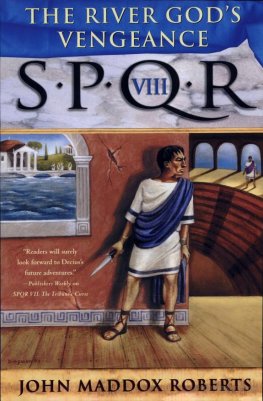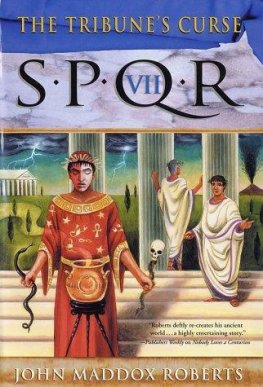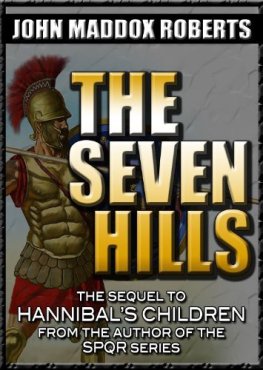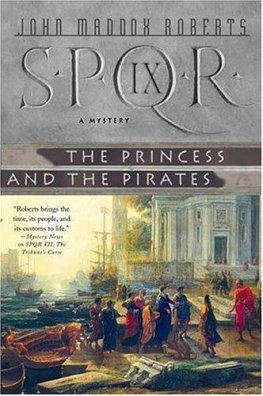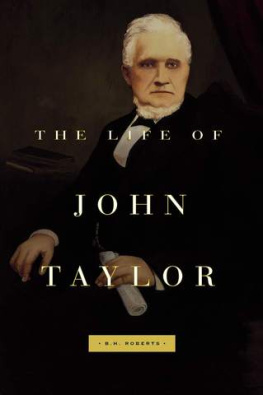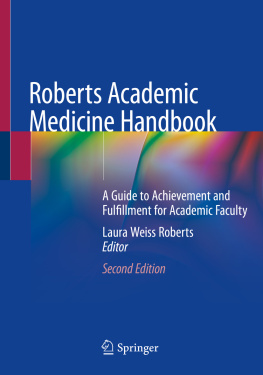John Roberts - An Academic Question
Here you can read online John Roberts - An Academic Question full text of the book (entire story) in english for free. Download pdf and epub, get meaning, cover and reviews about this ebook. genre: Detective and thriller. Description of the work, (preface) as well as reviews are available. Best literature library LitArk.com created for fans of good reading and offers a wide selection of genres:
Romance novel
Science fiction
Adventure
Detective
Science
History
Home and family
Prose
Art
Politics
Computer
Non-fiction
Religion
Business
Children
Humor
Choose a favorite category and find really read worthwhile books. Enjoy immersion in the world of imagination, feel the emotions of the characters or learn something new for yourself, make an fascinating discovery.

- Book:An Academic Question
- Author:
- Genre:
- Rating:5 / 5
- Favourites:Add to favourites
- Your mark:
- 100
- 1
- 2
- 3
- 4
- 5
An Academic Question: summary, description and annotation
We offer to read an annotation, description, summary or preface (depends on what the author of the book "An Academic Question" wrote himself). If you haven't found the necessary information about the book — write in the comments, we will try to find it.
An Academic Question — read online for free the complete book (whole text) full work
Below is the text of the book, divided by pages. System saving the place of the last page read, allows you to conveniently read the book "An Academic Question" online for free, without having to search again every time where you left off. Put a bookmark, and you can go to the page where you finished reading at any time.
Font size:
Interval:
Bookmark:
John Maddox Roberts
An Academic Question
One of the best things about Athens is that it isn't Gaul. That year my family wanted me out of Rome. I, in turn, did not want to go back to Caesar's army in Gaul. For once the family concurred, not because Gaul was so dangerous and unpleasant but because nobody was winning any glory there except Caesar. If you believed the dispatches he sent back for publication he was conquering the place all by himself.
But to stand for higher office I needed more military time on my record. This is not to say that Gaul was the only area of Roman military operations that year. Cassius Longinus was fighting the Parthians in Syria, and Appius Claudius was, technically, still at war in Cilicia. But Syria was an ill-starred place since the defeat of Crassus at Carrhae and bad blood lay between my family and the Claudians.
Fortuitously, a minor outbreak of piracy occurred in the waters around Cyprus and I was offered an equally minor naval command to deal with it. Like any sensible Roman I detest sea duty, but, upon consideration of the alternatives, I took it.
The secret of handling such an assignment in those days was, simply: don't rush it. I had a whole year ahead of me to crush these nautical bandits so I determined to take my time getting to Cyprus, be leisurely in my naval operations, and get back to Rome just in time to stand for next year's praetorship.
So, when on the way to Cyprus my little flotilla put in at Piraeus, I was quick to take the opportunity to laze about for a few days and see the sights. I admired the fortifications of Piraeus, built more than four centuries before by Themistocles, and walked the impressive length of the Long Walls, which connected the port with Athens by a continuous stretch of fortification.
Accompanied by my slave, Hermes, I walked between the walls all the way to the city. I could have hired a horse or been carried in a litter but I needed to stretch my legs after the voyage and, in any case, such luxuries were still frowned upon by my class in those days. A public man of military age was expected to make a show of simplicity, especially among degenerate foreigners.
I presented myself at the house of the Roman prefect, one Publius Serrius, an agreeable drudge, and let him know that I was on no official business in Athens and would be truly happy not to be involved in any during my stay. Hermes stashed our meagre baggage in the room we were given, and I was off to see the sights.
It pains me to admit it, but Athens proved to be as beautiful as everyone said. It has been devastated and sacked a number of times but I saw no evidence of this. Admirers from the world over vie with one another to adorn Athens, and it is full of beautiful works of art and splendid architecture. The city is much smaller than you would expect so it is easy to see everything in a short time. Within two days I had seen the sights of the Acropolis, the Stoa and the Erechtheum and everything else. I had seen so many statues that my sleep was populated with them.
That evening at dinner I remarked to my host that I had run out of noteworthy things to see and asked if he had any suggestions, since I had to depart soon. He turned to the man reclining to his left. 'What do you suggest, Androcles?' This man was a philosopher, one of those tiresome people who spend their lives just thinking about things but never doing anything. He wore the requisite shabby robe and untrimmed beard and had clearly put in long hours practising at looking wise.
'Has the senator visited the Academy? It is just a short walk from the city by way of the Dipylum Gate.'
'The Academy?' I said. 'Isn't that where Socrates taught?'
He looked pained. 'Plato, sir. The Platonic school still meets there, as they have for more than three hundred years.'
Serrius must have caught my expression. 'It is one of the most beautiful groves in the world, Decius Caecilius. Besides exquisite plantings and landscaping it contains some wonderful sculptures.'
That was more like it. The last thing I wanted to do was listen to boring old philosophers jabbering at one another, but a fine garden is always a delight to any Roman's heart.
'I will be most happy to be your guide,' Androcles said. Philosophers always have their hands out for a tip.
'The Academy,' Androcles said, 'takes its name from Academus, a hero of the Trojan War. He first planted this grove, and willed it to his native city, Athens.'
We were strolling along outside the city, alongside the river Cephissus. It was more a creek than a river. Like Rome, Athens has spilled outside its old walls and we were not in open country, but rather in a sort of suburb called the Ceramicus, because many of the city's potters had their homes and workshops there. I had given Hermes the day off.
'That was one influential group of veterans,' I said. 'Every city I've ever visited was founded by a Trojan fleeing the sack of Troy or else by someone who fought there on the Greek side.'
'So it seems. The Trojan prince Aeneas founded Rome, according to legend.'
'That's how the story goes,' I said. 'There is ample room for scepticism, but it may soon be inadvisable to voice doubts.'
'Why should that be?'
'Because Julius Caesar himself claims descent from the goddess Venus by way of Aeneas. Casting doubts upon the ancestry of Caesar is a poor idea these days.'
'I shall keep that in mind. Ah, here we are.' We stood before a life-sized statue whose inscription identified it as Plato. This was not one of the wonderfully polished and refined sculptures of the city but a rather plain chunk of marble with a coarse finish. In keeping with philosophical simplicity, no doubt.
The statue stood by an equally simple gate in a stone wall perhaps eight feet high. We passed within and I gazed with some awe, which I took pains to conceal, on the most perfect outdoor setting of my long and varied experience.
The Academy was not at all what I had expected. In my mind I had pictured a garden about the size of a typical country villa's, with a circle of stone seats in the centre where students could listen to the harangues of a teacher and pretend that they weren't bored to death. Instead I discovered a varied grove as big as a good-sized farm, landscaped in low hills so that you could not see the whole thing, but every turn in the many paths revealed a view that made the breath catch in your throat. Light and shade were perfectly balanced, with trained vines arching upon arbors over many of the paths, trimmed so that you could always see through them and plenty of sunlight was available.
Classes took place mostly in little clearings where the students simply sat on the soft grass, though some energetic teachers walked about as they spoke, their students following. Many of these students gave every evidence of paying attention.
The sculptures were small, exquisite, and widely spaced 'so that they become objects of contemplation, rather than distraction,' Androcles explained.
We rounded a curve and came upon a gymnasium where fifty or sixty naked young men ran, wrestled, jumped, played ball or swam in a pool that looked like the jewel of a god dropped there and forgotten. I had not imagined that the Academy included physical pursuits but Androcles explained that Plato had insisted that it was useless to cultivate the mind if the body was not given equally rigorous training.
There is this to be said about the noble youth of Athens: they are beautiful. I had heard this phenomenon described by Cicero, but had never quite believed it. I looked them all over and could not perceive a flaw anywhere. Compared to them, a similar muster of young Romans of my own class on the Campus Martius was a festival of ugliness. I have never shared the Greek erotic fascination with boys, but in this place I could understand its appeal.
Font size:
Interval:
Bookmark:
Similar books «An Academic Question»
Look at similar books to An Academic Question. We have selected literature similar in name and meaning in the hope of providing readers with more options to find new, interesting, not yet read works.
Discussion, reviews of the book An Academic Question and just readers' own opinions. Leave your comments, write what you think about the work, its meaning or the main characters. Specify what exactly you liked and what you didn't like, and why you think so.

